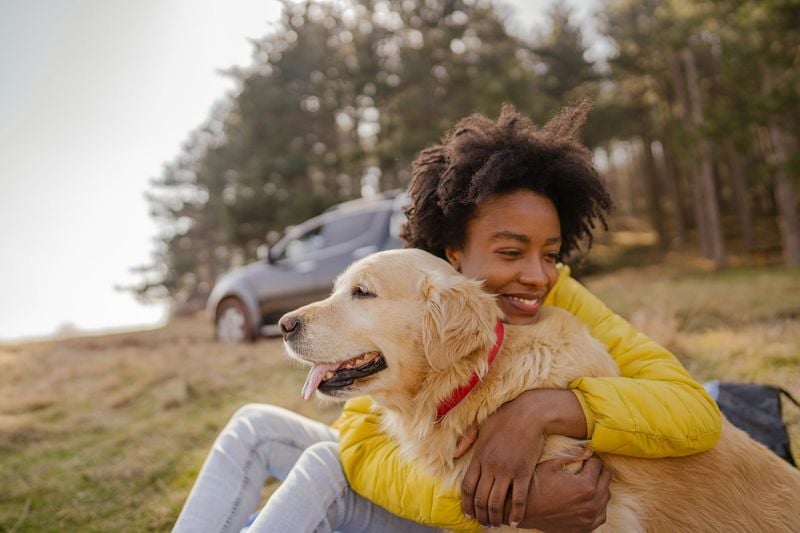These 7 Dog Breeds Are Born to Be Emotional Support Heroes
Dogs have an incredible ability to sense human emotions and provide comfort during tough times. For people struggling with anxiety, depression, PTSD, or other emotional challenges, the right canine companion can make a world of difference. Their presence alone can ease loneliness, reduce stress, and create a sense of safety and emotional stability.
While any loving dog can offer support simply by being there, some breeds seem almost tailor-made for the role of an emotional support animal (ESA). These breeds are known for their gentle nature, strong attachment to their humans, and an intuitive sense for when something’s wrong. They aren’t just loyal—they’re attuned to your moods, quick to offer cuddles or affection when you need them most, and calm enough to be by your side during both daily routines and emotional rough patches.
Whether you live in a busy city apartment, a quiet rural home, or somewhere in between, the right dog can help you feel more grounded and supported every day. And while love and companionship matter more than pedigree, certain breeds have traits that make them stand out as especially well-suited to providing emotional support.
If you’re considering bringing an emotional support dog into your life, here are seven breeds that are not only loving and loyal but also particularly gifted at being your emotional anchor.
1. Labrador Retriever: The Intuitive Mood-Lifter
Labradors possess an almost supernatural ability to read human emotions. When you’re feeling down, a Lab will often nudge your hand or rest their head on your lap, as if to say, “I’m here for you.” Their steady temperament means they rarely get rattled by changes in routine or environment.
These friendly companions balance playfulness with calm attentiveness. They know exactly when to distract you with a game of fetch and when to simply offer quiet companionship. Labs form deep bonds with their humans and genuinely seem to care about their emotional wellbeing.
Their intelligence makes training straightforward, which is particularly helpful for those whose emotional challenges might make complex training difficult. A Lab’s consistent, dependable nature provides a sense of security that helps ground people during emotional storms. Their unwavering loyalty creates a safe emotional anchor when life feels unpredictable.
2. Golden Retriever: The Sunshine Therapist
Nothing dispels dark thoughts quite like a Golden Retriever’s joyful presence. These dogs seem to radiate happiness from their wagging tails to their smiling faces. Their natural optimism becomes contagious, often helping their humans shift perspective during difficult emotional moments.
Golden Retrievers show remarkable patience, making them ideal for people who might have unpredictable emotional responses. They absorb tension without reflecting it back, creating a calming influence in any environment. Their gentle mouths (developed for retrieving game without damage) translate to a soft touch that many find comforting.
A fascinating quality of Goldens is their ability to match their energy to yours. When you’re energetic, they’re playful companions; when you’re struggling, they become tranquil comforters. This adaptability makes them exceptional emotional support partners who can respond appropriately to changing emotional needs throughout the day.
3. Cavalier King Charles Spaniel: The Lap-Sized Comforter
Cavaliers were literally bred for one purpose: to be loving companions. Their history as royal lap dogs has created a breed that thrives on human connection and excels at providing comfort. Unlike some small breeds, Cavaliers rarely show nervousness or aggression, instead offering a calm, steady presence.
Their expressive eyes seem to look straight into your soul, creating a sense of being truly seen and understood. Many Cavalier owners report feeling an almost telepathic connection with their dogs. The perfect size for cuddling, these spaniels can provide physical comfort without overwhelming even those in small living spaces.
Cavaliers adapt beautifully to different lifestyles, happy to accompany an active person on adventures or snuggle with someone who needs quiet recovery time. Their gentle nature makes them excellent emotional support dogs for children or elderly individuals who might be overwhelmed by larger or more energetic breeds.
4. Poodle: The Hypoallergenic Emotional Genius
Poodles bring the perfect combination of intelligence and sensitivity to their role as emotional support animals. Available in three sizes (Toy, Miniature, and Standard), there’s a Poodle to fit any living situation. Their hypoallergenic coats make them accessible even to people with allergies who might otherwise miss out on canine emotional support.
Behind those sometimes fancy haircuts lies one of the most emotionally attuned dog breeds. Poodles develop an almost uncanny awareness of their owner’s emotional states and often respond with thoughtful, appropriate actions. Their problem-solving abilities mean they can figure out unique ways to provide comfort.
The Poodle’s dignified demeanor can be especially helpful for those who need emotional support but feel uncomfortable with the attention a more obviously “therapy-looking” breed might attract. Despite their elegant appearance, Poodles are surprisingly robust and adaptable companions who can handle the sometimes unpredictable circumstances that come with supporting humans through emotional challenges.
5. Yorkshire Terrier: The Mighty Emotional Guardian
Don’t let their tiny size fool you – Yorkies pack enormous emotional support capabilities into their small frames. Originally bred as ratters in clothing mills, these dogs have a surprisingly brave and resilient spirit that can inspire confidence in their human companions. Their portable size means they can provide continuous support in situations where larger dogs couldn’t go.
Yorkshire Terriers form incredibly strong bonds with their people. Many Yorkie owners describe feeling like their dog can sense their emotions before they’re even fully aware of them themselves. Their alert, attentive nature means very little escapes their notice – including subtle changes in your emotional state.
Despite their reputation for being somewhat sassy, well-socialized Yorkies develop remarkable empathy. They often become extraordinarily attuned to their person’s emotional needs, offering persistent comfort during difficult times. Their tenacious spirit can help motivate people struggling with depression or anxiety to maintain routines and face challenges.
6. Border Collie: The Emotionally Perceptive Workhorse
Border Collies bring an extraordinary level of emotional intelligence to their relationships with humans. Famous for their ability to read subtle body language in sheep, they apply this same remarkable perception to understanding human emotional states. A Border Collie often notices your mood shift before you’ve said a word.
For people who find that physical activity helps manage their emotional health, Border Collies make ideal partners. They encourage regular exercise and outdoor time, both proven to boost mood and reduce anxiety. Their incredible focus means they’re not easily distracted from their most important job: supporting you.
While Border Collies require more mental and physical stimulation than some breeds, this need creates a beneficial structure that can help people with emotional challenges maintain healthy routines. Their problem-solving abilities mean they often find creative ways to provide comfort and support. Many Border Collie owners report that their dog seems to develop personalized strategies for helping them through difficult emotional moments.
7. Havanese: The Velcro Emotional Companion
Havanese dogs earned their nickname as “velcro dogs” because of their desire to stay constantly connected to their humans. This natural attachment makes them exceptional emotional support animals who rarely leave your side during difficult moments. Their silky coat isn’t just beautiful – many find the repetitive action of stroking their soft fur deeply calming.
Originally bred as companions to Cuban aristocracy, Havanese have centuries of companionship in their genetic makeup. They seem to intuitively understand their role as emotional supporters. Their playful, sometimes clownish antics can bring unexpected laughter during dark times, providing natural mood elevation.
Havanese adapt remarkably well to different living situations and activity levels, making them suitable emotional support dogs for people with varying lifestyles and limitations. They excel at picking up on emotional cues and often respond with gentle nuzzles or playful distractions as needed. Their non-shedding coat also makes them accessible to people with mild allergies who need emotional support.













